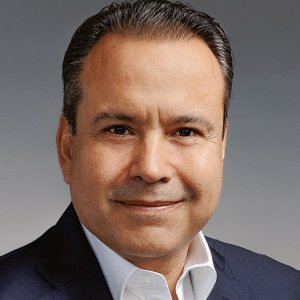Mexico City as an Epicenter of Sustainability

Economic growth cannot be achieved at the expense of sustainability. This is a statement that Tanya Müller, Secretary of SEDEMA, upholds and it is a motto the present administration of Mancera has pushed forth. “Urban development must go hand in hand with sustainability and on an international level, Mexico City is garnering recognition. The C40 Cities Climate Leadership Group is a network of the world’s megacities taking action to address climate change risks and impacts both locally and globally. Mexico City has been chosen to host the summit in 2016,” Müller boasts.
In Müller’s eyes, environmental education plays a fundamental role in changing the behavior of people and upholding solid sustainability practices. SEDEMA has carried out several activities and implemented campaigns to raise awareness, and one of the most prominent is in water management. According to Müller, in Europe water consumption is around 150l per person, which is due to the fact that water is relatively expensive per cubic meter so there is an incentive to preserve this resource. Mexico City has the lowest tariffs on a national level and, as a result, water consumption reaches 350-500l per person
“We must find a balance of supplying this precious resource and charging the appropriate tariffs. Overall 97% of the population has access to quality, potable water and the remaining 3% do not receive a constant supply of water, meaning this demographic is payment exempt,” she explains. SEDEMA is carrying out an integral program to find new supply sources, make the system more efficient, and improve infrastructure. However, she is quick to add that illegal settlements in the periphery of the city do not receive infrastructure support in order to discourage urban development in these regions due to unsafe and unhygienic living conditions. There are also several waste management campaigns where families are encouraged to separate their residues and in return receive vegetables and goods from the productive areas of the city.
The private sector has also made an important contribution in incentivizing green practices, and for Müller the construction industry is to be lauded for its attempts to implement sustainability at its core. “New buildings are incorporating energy efficiency strategies and developers are looking to obtain international certifications. This is mainly motivated by strict transnational companies that ask that their buildings have a degree of sustainability,” she expands. SEDEMA is incentivizing the construction of new green buildings and the renewal of existing ones within the city.
Monitoring systems and trends such as Big Data are beginning to take a prominent position in defining public policy and helping governmental agencies make concise decisions. One of the most efficient and robust systems nationwide is SEDEMA’s air quality monitor. This platform serves as an example for other cities in Mexico and the secretariat takes steps to share its knowledge by providing courses and training. Nationwide, only 92 cities have an air quality monitoring system in real time, and with the support of experts this could certainly increase. In order to ensure the optimal performance of the system each year, auditors from the US are brought in to survey the equipment and the interpretation of the data. “Our system is the only one in Latin America that forms part of the Air Now platform, and in order to be included we must follow strict criteria.”
The platform is open to the public so people can evaluate the quality of the air in some cities in North America. It is important to note that Ciudad Juarez is also part of Air Now; however, Müller makes the distinction that it does not report its results directly, rather it uses the platform to process its own data. Achieving the ambitious goals Mexico has set out in its climate change strategy requires the involvement of different governmental agencies. “We also have a digital platform, which can be updated by each secretariat with its advancements. It is a holistic program and all entities have goals to reach,” she points out. The challenges a megacity like Mexico City faces are enormous. This city is an unstoppable epicenter of social, cultural, political, and economic development. For Müller the message and mission are clear, “We must ensure that all these activities are conducive to the themes of efficiency and sustainability.”



















